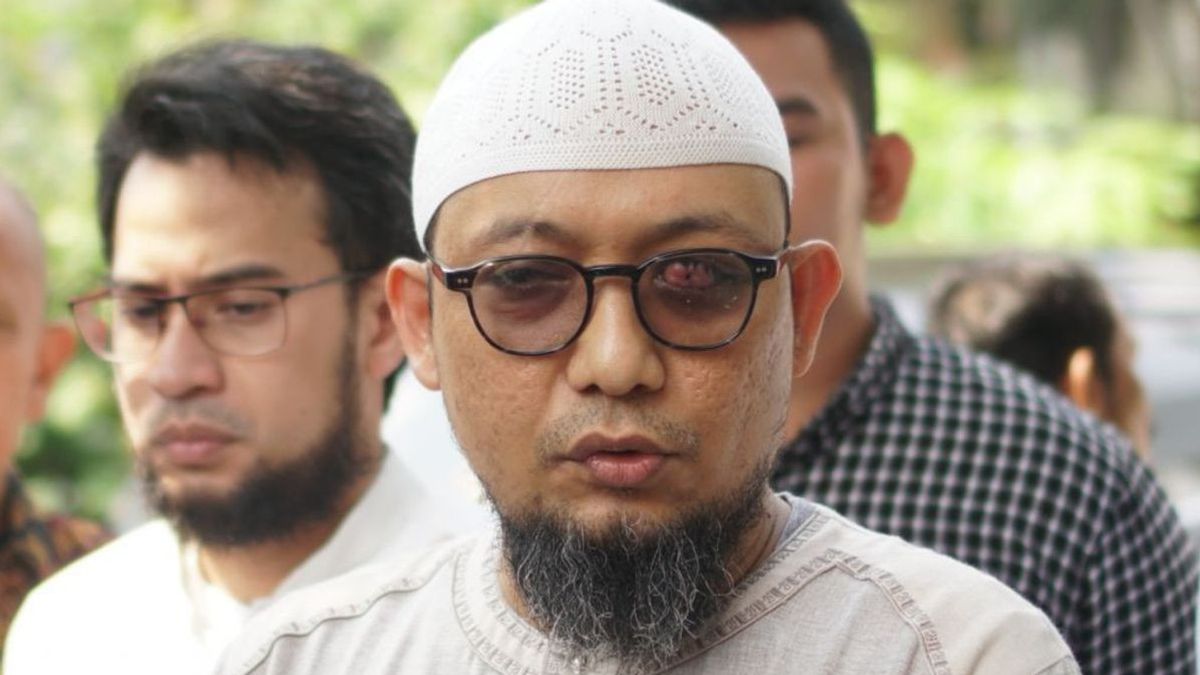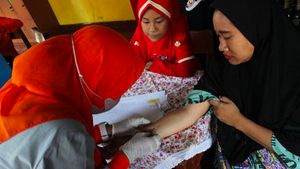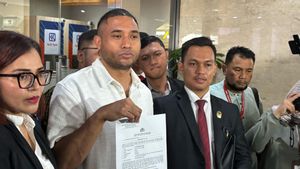JAKARTA - The public is disappointed with the demands made by the public prosecutor against the two defendants in the case of the Corruption Eradication Commission (KPK) investigator Novel Baswedan. This is because the prosecutors demanded Ronny Bugis and Rahmat Kadir Mahulette to be sentenced to one year in prison.
However, Criminal Law Expert from Al Azhar University Indonesia Suparji Ahmad thinks there is still a possibility that the judge will give harsh sentences to the two suspects.
Moreover, judges have the freedom and independence to decide cases based on their beliefs and the facts of the trial.
"Maybe the judge has different beliefs with the prosecutor. If the prosecutor says that Article 353 of the primary indictment is Article 355," Suparji said when contacted by VOI by telephone, Saturday, June 13.
It is known that during the trial of the charges, the prosecutor charged the two people on the basis of the indictment of Article 353 paragraph (2) of the Criminal Code in conjunction with Article 55 paragraph (1) 1 of the Criminal Code.
Article 353 regulates the matter of punishment for the criminal act of persecution which contains three paragraphs.
In paragraph (1), it is stated that maltreatment with premeditation is punishable by a maximum imprisonment of four years.
Paragraph (2) states, if the act results in serious injuries, the guilty is subject to a maximum imprisonment of seven years. Furthermore, in paragraph (3) states, if the act results in death the guilty is punishable by a maximum imprisonment of nine years.
So, reflecting on the article, Suparji assessed that there is still hope for the judge to issue a sentence of more than one year in prison.
"The threat of Article 353 is up to four years, not just a year. So in my opinion, the chance for the judge to convict is more than possible," he explained.
However, the possibility of a criminal penalty that is heavier than the charges depends on the judge. Suparji assessed that judges must be able to hear justice from the community in order to be able to provide a deterrent effect and educate the public.
Justice, he continued, needs to be upheld in this case. Because, as a result of the actions of Ronny Bugis and Rahmat Kadir, the senior investigator at the anti-graft agency had to lose his sight. Moreover, the demand for a year in prison is deemed not fulfilling a sense of justice.
"Try to compare it with other cases, for example, the case of Ahmad Dhani and Buni Yani. Those that have absolutely no physical harm, the verdict is heavier than (the persecution case against Novel), the demands are heavier than that," he said.
So, he hopes that the judge in this trial can decide the maximum sentence for the two defendants. The verdict in this case, he said, would have an effect on other law enforcement agencies to work calmly, safely and comfortably.
Given, the demand for a year in prison filed by the prosecutor also has an impact on other law enforcement officials. "At this rate, people are hesitant to work. Because apparently the state is not there to protect it," he said.
"Because the prosecutor as an instrument of the state should be present to protect by giving punishment to people who attack the state apparatus," he added.
Not surprisingly, the prosecutor's one-year demandsSuparji said he was not surprised by the prosecutor's demands at the trial. In view of this, he considers this legal process a mere play to fulfill the obligation to investigate the persecution case.
"I tend to think that this legal process is not only nullifying an obligation that someone should be punished for the Novel case, but the real facts are not revealed," he said.
One proof, continued Suparji, is that there is a difference in motive between the results of the investigation team that handled the persecution and the recent facts.
"The investigation team said Novel Baswedan was attacked by people whose motive was because Novel handled a high profile (corruption) case. But now it's different. Novel is considered to be denying its corps. That's something different and this is a clear play," he said.
Suparji said that the lengthy process in this case seemed quite charismatic if only ended by a one-year sentence for two defendants. So, he hoped the judge would not get caught up in the existing charade.
According to him, the judge must be able to apply the fairest punishment and in accordance with the wishes of the community, so that the persecutor of Novel Baswedan can be punished as severely as possible.
"Whereas the public voices a person like that, who has saved state money until he is injured, and has a deformed eye, the perpetrator should be punished as severely as possible," he said.
Previously, two defendants who sprinkled hard water against Novel Baswedan, namely Rahmat Kadir Mahulette and Ronny Bugis, were sentenced to a year in prison. The prosecutor assessed that the two were proven to have committed maltreatment which resulted in serious injuries.
In the trial, Rahmat was deemed proven to have committed maltreatment with planning and caused serious injuries to Novel using sulfuric acid that was splashed.
Meanwhile, Ronny was charged with being involved in the persecution for helping Rahmat.
The prosecutor assessed that the two defendants did not fulfill the elements of the primary indictment regarding serious maltreatment from Article 355 Paragraph 1 of the Criminal Code in conjunction with Article 55 Paragraph 1-1 of the Criminal Code.
This is because the liquid that Rahmat splashed accidentally hit Novel's eyes. "The defendant will only teach witness Novel Baswedan by pouring hard water on Novel Baswedan," said the prosecutor while reading out his charges on Thursday, June 11.
"But unexpectedly it turns out that Novel Baswedan's eye caused the right eye to malfunction and the left eye only functions 50 percent, which means permanent disability so that the elements of the primary indictment are not fulfilled," he continued.
For their actions, Rahmat and Ronny were later judged to have violated Article 353 Paragraph 2 of the Criminal Code, Article 55 paragraph 1 to 1 of the Criminal Code regarding pre-planned serious assault.
The English, Chinese, Japanese, Arabic, and French versions are automatically generated by the AI. So there may still be inaccuracies in translating, please always see Indonesian as our main language. (system supported by DigitalSiber.id)













